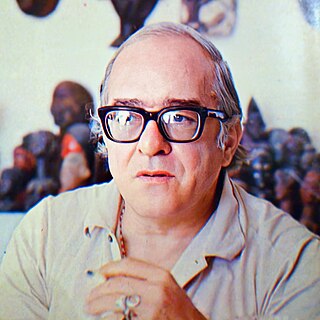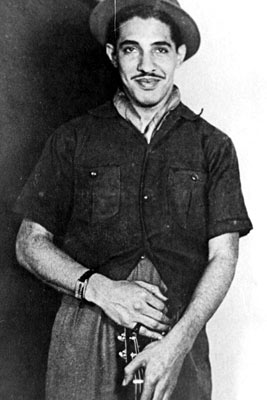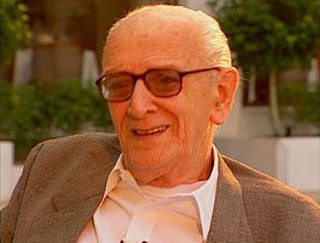
Samba, is a name or prefix used for several rhythmic variants, such as samba urbano carioca, samba de roda, recognized as part of the Intangible Cultural Heritage of Humanity by UNESCO, amongst many other forms of Samba, mostly originated in the Rio de Janeiro and Bahia States. Samba is a broad term for many of the rhythms that compose the better known Brazilian music genres that originated in the Afro-Brazilian communities of Bahia in the late 19th century and early 20th century, having continued its development on the communities of Rio de Janeiro in the early 20th century. Having its roots in the Afro-Brazilian Candomblé, as well as other Afro-Brazilian and Indigenous folk traditions, such as the traditional Samba de Caboclo, it is considered one of the most important cultural phenomena in Brazil and one of the country's symbols. Present in the Portuguese language at least since the 19th century, the word "samba" was originally used to designate a "popular dance". Over time, its meaning has been extended to a "batuque-like circle dance", a dance style, and also to a "music genre". This process of establishing itself as a musical genre began in the 1910s and it had its inaugural landmark in the song "Pelo Telefone", launched in 1917. Despite being identified by its creators, the public, and the Brazilian music industry as "samba", this pioneering style was much more connected from the rhythmic and instrumental point of view to maxixe than to samba itself.
Bossa nova is a relaxed style of samba developed in the late 1950s and early 1960s in Rio de Janeiro, Brazil. It is mainly characterized by a "different beat" that altered the harmonies with the introduction of unconventional chords and an innovative syncopation of traditional samba from a single rhythmic division. The "bossa nova beat" is characteristic of a samba style and not of an autonomous genre. The bossa nova wave became popular around the world and it helped to renew samba and to contribute to the modernization of Brazilian music.

Antônio Carlos Brasileiro de Almeida Jobim, also known as Tom Jobim, was a Brazilian composer, pianist, guitarist, songwriter, arranger, and singer. Considered one of the great exponents of Brazilian music, Jobim internationalized bossa nova and, with the help of important American artists, merged it with jazz in the 1960s to create a new sound, with popular success. As a result, he is sometimes known as the "father of bossa nova".

Elis Regina Carvalho Costa, known professionally as Elis Regina, was a Brazilian singer of MPB and jazz music. She is also the mother of the singers Maria Rita and Pedro Mariano.

Francisco Buarque de Hollanda, popularly known simply as Chico Buarque, is a Brazilian singer-songwriter, guitarist, composer, playwright, writer, and poet. He is best known for his music, which often includes social, economic, and cultural reflections on Brazil.

Marcus Vinícius da Cruz e Mello Moraes, better known as Vinícius de Moraes and nicknamed O Poetinha, was a Brazilian poet, diplomat, lyricist, essayist, musician, singer, and playwright. With his frequent and diverse musical partners, including Antônio Carlos Jobim, his lyrics and compositions were instrumental in the birth and introduction to the world of bossa nova music. He recorded numerous albums, many in collaboration with noted artists, and also served as a successful Brazilian career diplomat.

Dorival Caymmi was a Brazilian singer, songwriter, actor, and painter active for more than 70 years, beginning in 1933. He contributed to the birth of Brazil's bossa nova movement, and several of his samba pieces, such as "Samba da Minha Terra", "Doralice" and "Saudade da Bahia", have become staples of música popular brasileira. Equally notable are his ballads celebrating the fishermen and women of Bahia, including "Promessa de Pescador", "O Que É Que a Baiana Tem?", and "Milagre". Caymmi composed about 100 songs in his lifetime, and many of his works are now considered to be Brazilian classics. Both Brazilian and non-Brazilian musicians have covered his songs.

João Bosco de Freitas Mucci, known professionally as João Bosco is a Brazilian singer-songwriter and guitarist. In the 1970s he established his reputation in música popular Brasileira with lyricist Aldir Blanc.

Elza da Conceição Soares, known professionally as Elza Soares, was a Brazilian samba singer. In 1999, she was named Singer of the Millennium along with Tina Turner by BBC Radio.
Guinga is a Brazilian guitarist and composer born in Madureira, a working-class suburb of Rio de Janeiro. As a child, he was nicknamed "Gringo", because of his pale skin, and the artistic name "Guinga" comes from the way he pronounced the word.

Falso Brilhante is a 1976 studio album released by the critically acclaimed Brazilian MPB singer Elis Regina.

Simone Bittencourt de Oliveira, better known as Simone, is a Brazilian singer of Música Popular Brasileira (MPB) who has recorded more than 30 albums.

The Grêmio Recreativo Escola de Samba Portela from Rio de Janeiro, Brazil is a traditional samba school. Founded in 1923, it has the highest number of wins in the top-tier Rio parade, with 22 titles in total, including the 2017 Carnival parade.

Astrud Gilberto was a Brazilian samba and bossa nova singer and songwriter. She gained international attention in the mid-1960s following her recording of the song "The Girl from Ipanema".

João Lutfi, known professionally as Sérgio Ricardo, was a Brazilian film director and composer. He directed five films between 1964 and 1974.

Events in the year 2020 in Brazil.

Mário Lago OMC was a Brazilian lawyer, poet, broadcaster, composer and actor.

Events in the year 2021 in Brazil.

Events in the year 2023 in Brazil.
Abel Silva is a Brazilian poet, composer, and lyricist best known for his books of poetry including "Berro em Surdina" and his collaborations as a lyricist with Sueli Costa, João Donato, Dominguinhos, João Bosco, Fagner, Moraes Moreira and Roberto Menescal.














